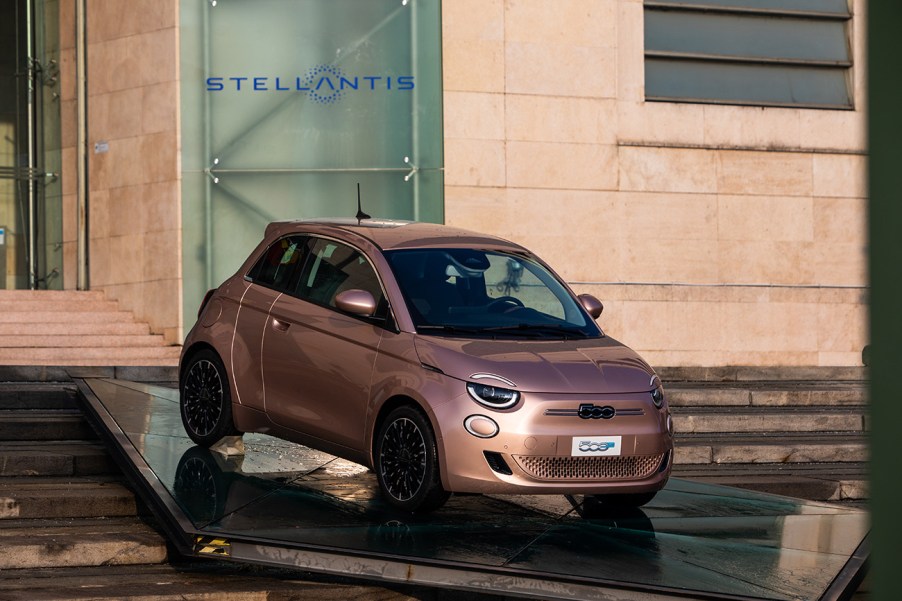
Stellantis’ Battery Electric Vehicles Will Be Powered By Samsung
Battery electric vehicles are the next evolution in transportation, without a doubt. Love it or hate it, electric cars are the future. That being said, automakers need to quickly make the necessary moves to meet the growing demand for EVs. Stellantis is doing its part to make sure it’s ready for the upcoming shift.
Stellantis signs deal with Samsung SDI to secure its production of battery electric vehicles

With such a diverse portfolio of automotive brands, Stellantis needs to ensure it makes the right moves to keep them competitive. For Stellantis, that means looking toward increasing the production of battery electric vehicles. However, you can’t make a battery electric vehicle without batteries. That is why the automaker has recently signed a deal with Samsung SDI for joint battery production, according to a report from Automotive News.
“The two companies (Samsung SDI and Stellantis) have struck a MOU (memorandum of understanding) to produce EV batteries for North America,” according to an anonymous source close to the matter.
The source also explained that both parties are reviewing the location of the joint venture, which will be formally announced at a later date. Automotive News stated that South Korea’s Yonhap news reported that the two entities will build a battery production facility in the United States.
Samsung SDI currently has battery production facilities in South Korea, China, and Hungary and supply BMW, Ford, and other automakers.
Stellantis is already reconfiguring existing facilities for electric vehicle production

In the first half of October 2021, it was reported that Stellantis was reconfiguring its Mirafiori manufacturing plant in Italy to be a “hub” for the production of battery electric vehicles. The reconfiguration is intended to preserve jobs and increase manufacturing efficiency as the Stellantis prepares to ramp up its EV production.
The Mirafiori plant will be responsible for two new Stellantis battery electric vehicles, which will begin production sometime between 2022 and 2024. Currently, the only electric vehicle produced at Mirafiori is the electric Fiat 500. Once the new EV launches, the factory will be Stellantis’ main production facility for battery electric vehicles in Italy.
Once the reconfiguration is complete, one of the first battery electric vehicles that the facility builds will be a Maserati EV. Stellantis has not revealed the name or any other details about the future Maserati electric vehicle. We speculate that Stellantis will likely not reveal more about the future battery electric vehicles until early to mid-2022.
Using an outside supplier for EV batteries can be risky

Since the shift to battery electric vehicles is relatively recent, most automakers are not prepared to produce batteries in-house yet. That inability means brands have to rely on third-party suppliers for EV battery modules. It is a relatively straightforward situation, but it can have serious issues if due diligence is not taken.
For example, General Motors is facing a massive recall of the Bolt EV due to faulty batteries sourced from LG. Over 100,000 vehicles had to be recalled when several Bolt EV’s spontaneously combusted due to a manufacturing defect in the battery modules provided by LG. The ordeal is said to cost General Motors $2 billion, but after reaching an agreement, LG is going to foot most of that bill.
There are also ethical concerns to consider. The process for harvesting materials such as lithium and cobalt to produce EV battery modules is not perfect, and some experts believe that the battery supply chain is plagued with human rights issues.
Rivian is currently facing questions about the supply chain of its batteries just as the electric vehicle maker prepares for its IPO. Should it be found that there are human rights conflicts associated with its battery suppliers, it could mean significant financial liability.
Stellantis would do well to confirm that its new partner Samsung SDI isn’t hiding any dirty secrets.


